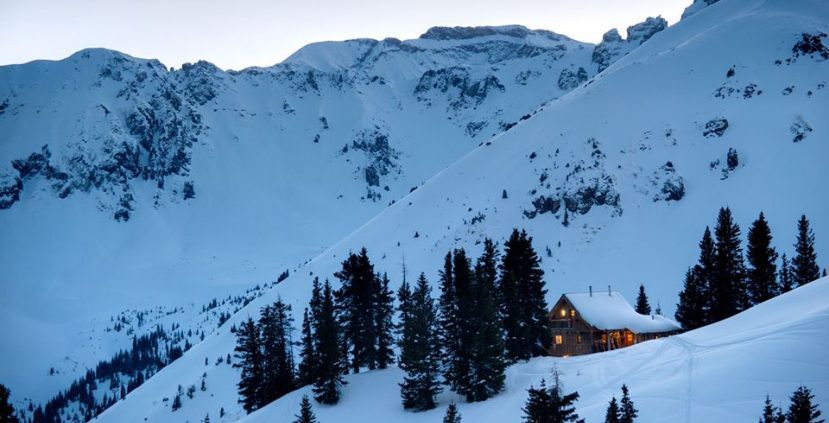
Winter has a particular sound at 12,000 feet above sea level in Colorado’s San Juan Mountains. Still. Hushed. The world, a mere whisper. Snow blankets surrounding peaks, turning their angles smooth, softening them into rippling lines of white. And frosted spruce trees speckle the horizon.
When Bob Kingsley, owner of the OPUS Hut, began building a timber-frame lodge nestled high in the mountains of southwest Colorado, he wasn’t really thinking about quiet, however. He was thinking mostly about snowpack, slopes, skiing and his visits to lodges in the Alps, Andes and Himalayas where guests were greeted with wholesome food, warm drinks and plush bedding so they could travel light through the mountains. It was 2005. Swiping wasn’t a thing. Smartphones were still in their infancy. And life wasn’t yet so full of electronic distraction. Fifteen years later, the gift of disconnection and resulting reconnection to the natural world is one of the greatest draws to a stay at the OPUS Hut. And it begins with getting there.
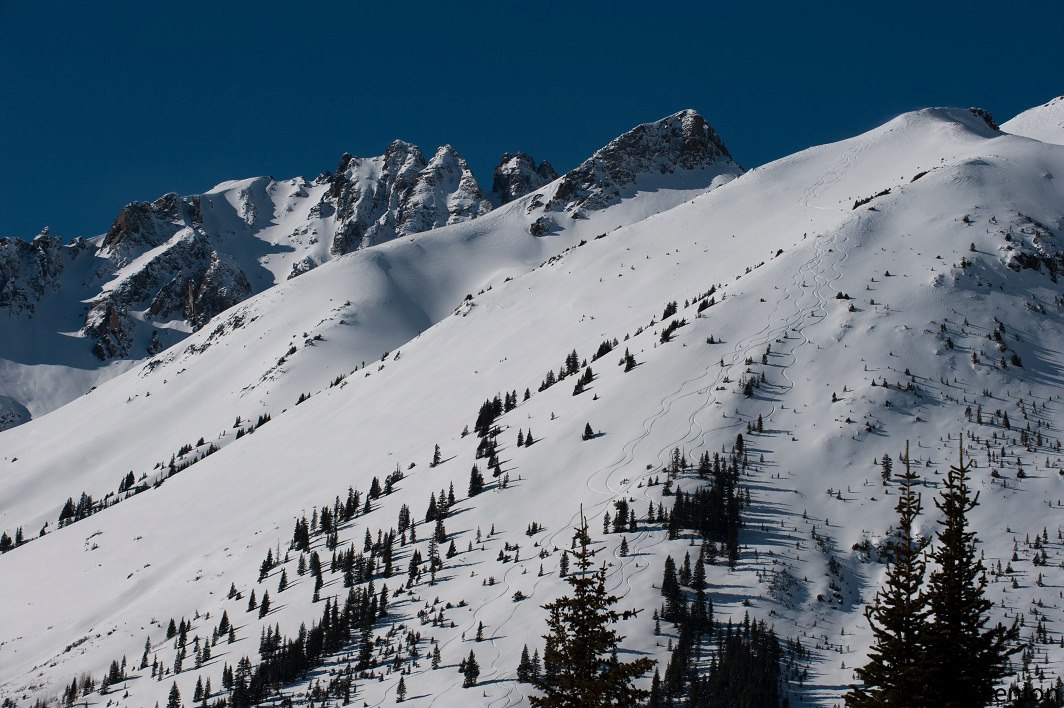
The three-and-half mile climb starts at a trailhead off Highway 550, one of the most iconic stretches of road in the American West because of its plunging cliffs and towering granite walls. From the trailhead, guests equipped with backcountry touring gear or snowshoes, wind there way up, up, up through a glazed landscape and away from the hustle below. Awash in their own breath, the soft crunch of snow under skis and the perfumes of winter, the journey is both a challenge and a meditation. The dips and curves of the route are an invitation to pause, to gaze at white ridges erupting against azure blue skies.
Along the trail, guests take in some of the skiing terrain, which is nothing short of world class. An endless canvas of routes for skiers and snowboarders of all abilities surrounds the OPUS. The names alone are alluring—Crystal Lake, Sunset Basin, Sound of Music. Kingsley, who has skied mountain ranges around the world, says after fifteen years at the OPUS, he’s still exploring the area. Beginner and intermediate runs are out the back door, and more advanced skiing, including 13,000-foot summits, are a short distance away. Many guests who are unfamiliar with the area hire local guides and in Kingsley’s opinion, that always enhances the experience.
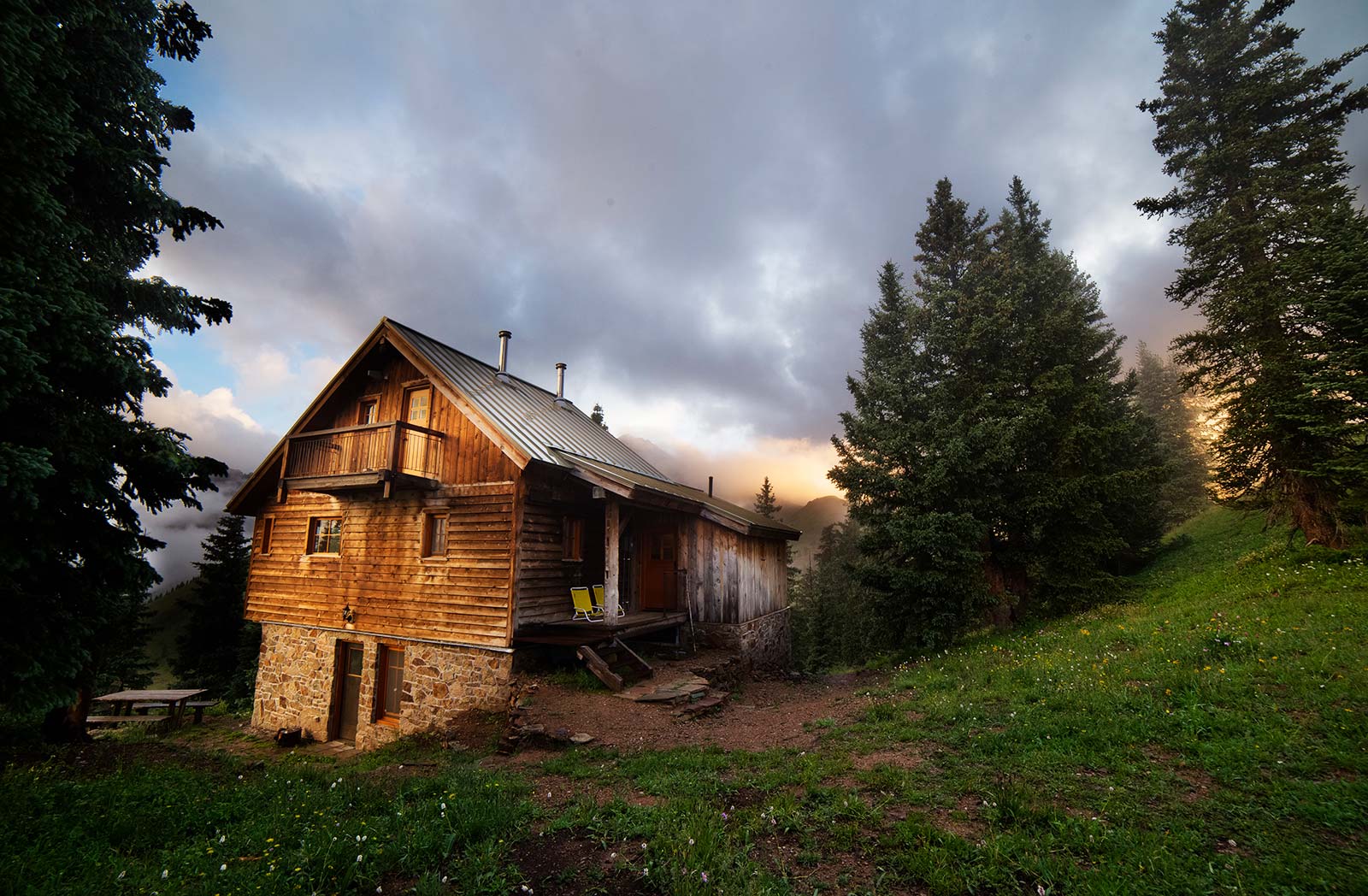
As guests ascend the final stretch of trail, the OPUS peeks through a cluster of spruce trees. With its rustic pine exterior atop a handcrafted stone foundation and snow dripping from the roof like taffy, the lodge is warming at first sight. Inside, a row of south-facing windows frame the aptly- named Paradise Basin, an expanse of white cradled by soaring ridgelines that beckons skiers with its varied terrain and fresh powder. The wood-fired stove pops and fizzles, emitting the sweet scent of sap and hand-hewn hardwood give the place a feeling of strength and rustic beauty. On close listen, that hardwood has stories to tell. Refurbished from a dairy farm in Wisconsin built by German settlers in the early 1900s, the beams and posts traveled across the country, then were flown high into the Rockies by helicopter. The timber isn’t alone in its history. The walls, the Amish wood cook-stove, the stones could all tell a tale or two, carried on backs, by helicopter or dragged over the snow high into the alpine.
In a world of ever-growing strains on the environment, the OPUS is a welcome refuge for earth-conscious travelers. Sustainability was another thing on Kingsley’s mind when he constructed the lodge. He’d long been drawn to methods of building that were green and he’d witnessed the sometimes-high impact of backcountry huts on the environment. The OPUS, a stand-alone off-grid structure, relies exclusively on photovoltaic power. Built to be energy-efficient, passive solar and solar-thermal-in-floor heating keeps the lodge warm without burning large quantities of firewood. Servers are trained to burn fires cleanly and one of the wood-fired heat sources is also a cook stove that’s used to prepare meals. Additionally, in an arid climate like the American West, water is a limited resource and the OPUS relies on a roof-water catchment system while employing practices to conserve water. OPUS also uses the compost from the modern, odor-free indoor composting toilets and food scraps to rebuild topsoil disrupted by mining activity.
After the journey there and the drinking in of awe-inspiring vistas by the fire while sipping tea or hot cocoa, guests settle into their bedrooms. The OPUS sleeps twenty and can be reserved on a whole-hut or individual-room basis. Once settled and recharged, many guests venture to nearby slopes for a short ski before afternoon soup. One of the most popular routes climbs the ridgeline above the OPUS. At the top, after imbibing more inspiring panoramas, skiers then carve their way back to the lodge’s front door. Those who stay behind often opt to recline in a lounge chair warmed by the sun with a beer, cocktail or glass of wine or indulge in the sort of nap possible only in place so far away from everything.
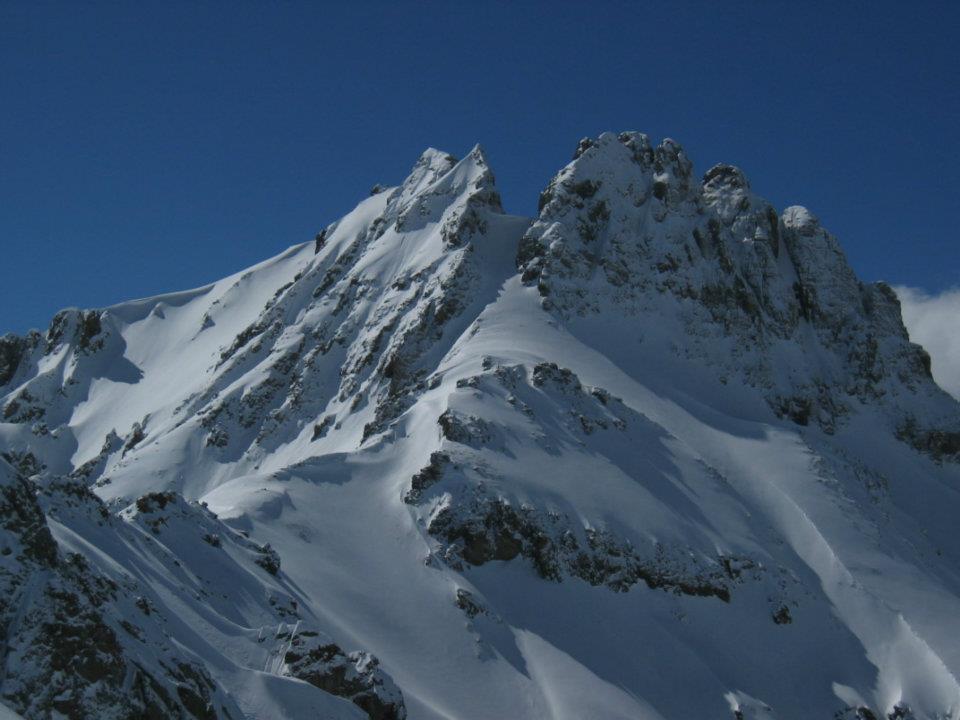
Evenings pass in conversation, board games, drinks and a meal that seems nothing short of magical, especially given the remoteness of the dining. Steaming polenta, empanadas or risotto with fresh salad and homemade bread punctuated with fudge, lemon meringue or apple tart. All meals are made with organic ingredients, hauled in by servers on their backs, and tailored to guests’ dietary preferences.
Days draw to a close in the wood-fired sauna while the sun paints the horizon all shades of blues, and pinks, and purples, alpine glow illuminating the peaks. Stepping from the sauna’s toasty cedar interior, the deck serves as an observatory for the night sky flickering awake. Venus. Orion’s Belt. The Milky Way. The world hangs above in balance, beauty in the insignificance and the multitude.
Wrapped in the whisper of stillness, guests plan tomorrow’s adventure, knowing it will begin with a steaming cup of coffee or tea by a crackling fire as the sun crests the mountains now draped in starlight.
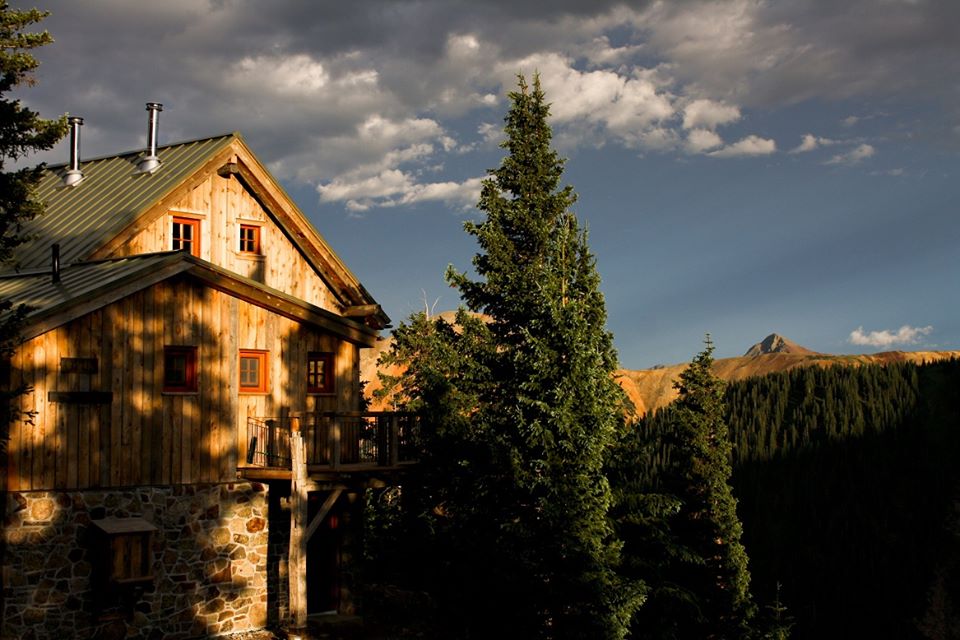
The OPUS Hut is open for the winter from late-December through mid-May and for the summer from July through September. For more information, visit www.opushut.com.

